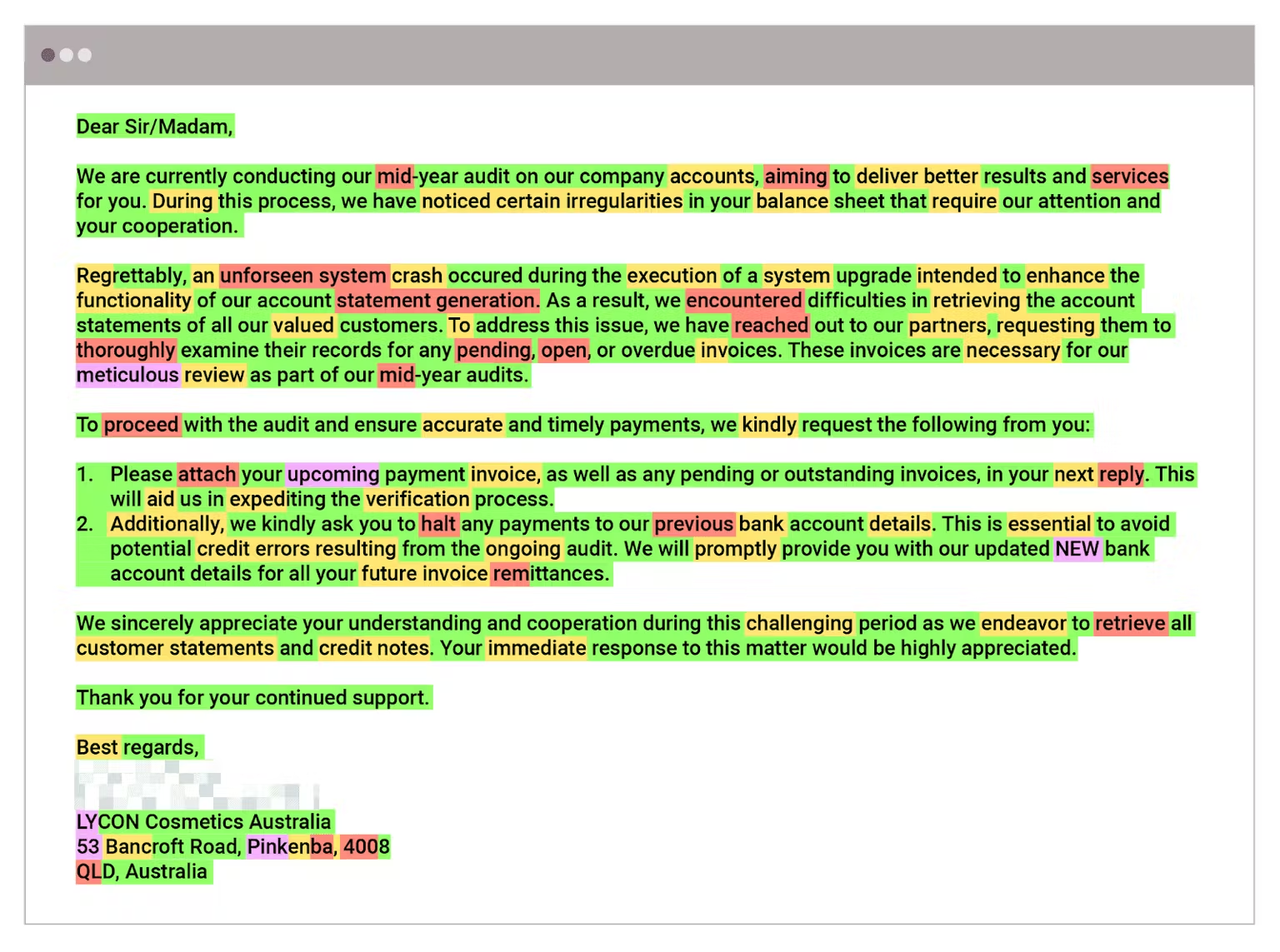Analysis of Phishing Emails Shows High Likelihood They Were Written By AI

It’s no longer theoretical; phishing attacks and email scams are leveraging AI-generated content based on testing with anti-AI content solutions.
I’ve been telling you since the advent of ChatGPT’s public availability that we’d see AI’s misuse to craft compelling and business-level email content. According to cybersecurity vendor Abnormal Security’s latest report, AI Unleashed: 5 Real-World Email Attacks Likely Generated by AI in 2023, the likelihood of emails today being written by AI is very high.
According to the report, “the Abnormal platform determines the probability that an attack was AI-generated by utilizing ChatGPT—a newly-launched tool that leverages a suite of open-source large language models (LLMs) to analyze how likely it is that a generative AI model created the message.”
They provide some color-coded examples, like the one below to make the case.
 Source: Abnormalsecurity.com
Source: Abnormalsecurity.com
The color coding indicates just how predictable the next word would be based on its’ context to the left. The green words represent that each on was one of the top 10 predicted words to come from AI. Yellow words are from the top 100 most predicted words, and red, the top 1000.
The green coloring is pretty damning, as it’s unlikely that a human would be so predictable as to match LLM-based AI tools.
The report also notes the lack of typos and grammatical errors, meaning that these emails will be more compelling and more difficult to identify as being written by a hacker (because they weren’t).
While we’re just talking about text content, there’s no reason why an AI tool can’t be trained to look at legitimate email content from known brands to craft near-perfect emails that will fool just about anyone. It’s why we need users to remain vigilant – something taught via new-school security awareness training – to be always on the lookout for any kind of email that is unexpected and treat it with scrutiny.
KnowBe4 enables your workforce to make smarter security decisions every day. Over 65,000 organizations worldwide trust the KnowBe4 platform to strengthen their security culture and reduce human risk.
Request A Demo: Security Awareness Training

New-school Security Awareness Training is critical to enabling you and your IT staff to connect with users and help them make the right security decisions all of the time. This isn’t a one and done deal, continuous training and simulated phishing are both needed to mobilize users as your last line of defense. Request your one-on-one demo of KnowBe4’s security awareness training and simulated phishing platform and see how easy it can be!
PS: Don’t like to click on redirected buttons? Cut & Paste this link in your browser: https://info.knowbe4.com/one-on-one-demo-partners?partnerid=001a000001lWEoJAAW

